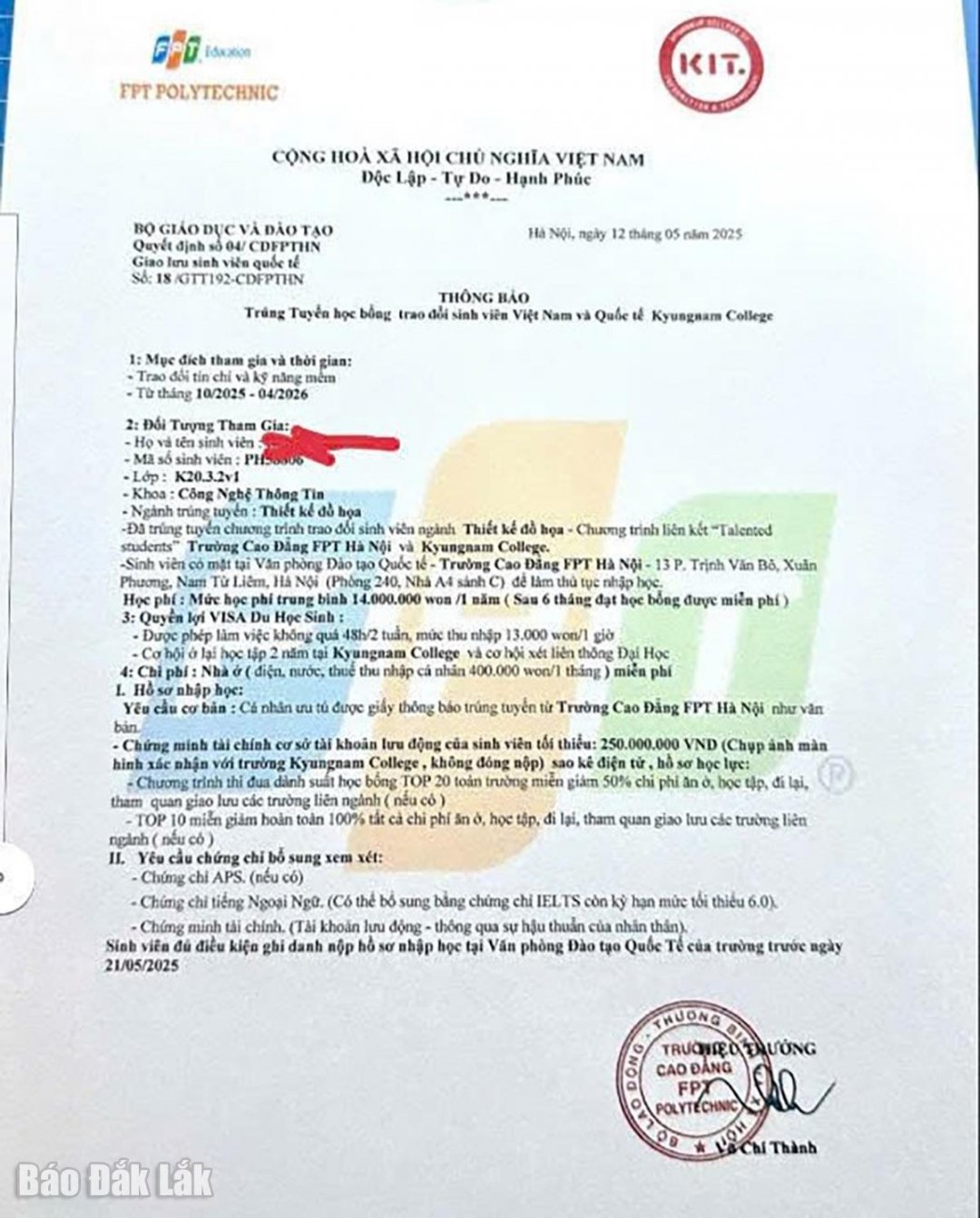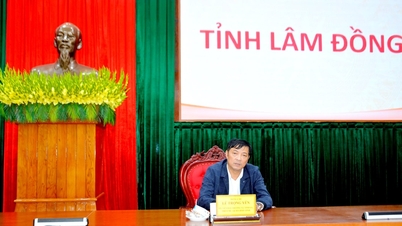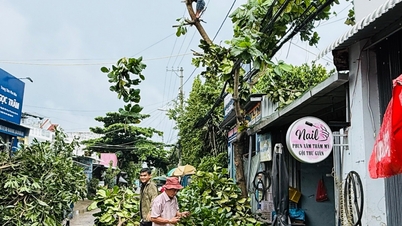Ms. TTNQ (residing in Ea Tam Ward, Buon Ma Thuot City) is still in shock when recounting the incident where her son almost became a victim of this scam. Her son is currently a first-year student atFPT College Hanoi.
More than a week ago, I received an email announcing that I had been "selected for the international student exchange scholarship program" between FPT College Hanoi and Kyungnam University (Korea).
The announcement stated that the scholarship covers all tuition and housing costs, but requires families to prove their financial ability with a minimum account balance of VND250 million. Along with that are a series of "dream" benefits such as: being able to work part-time with a salary of 13,000 won/hour, being able to stay and study for two more years, the opportunity to transfer to university...
 |
| Fraudulent scholarship announcement sent to students of FPT College Hanoi. |
Looking at the notice her son sent, she had not yet had time to be happy but felt worried. Looking closely, Ms. Q. discovered something unusual: the top of the notice printed the words " Ministry of Education and Training " issued the decision, but below was a red stamp and the signature of "Principal of FPT College Hanoi". Feeling something was wrong, she immediately called the school to verify and received information: all the documents were fake. Thanks to her vigilance, her family avoided a seemingly perfect scam.
NTAT, a second-year student at the University of Technical Education - University of Da Nang (from Ea Drang town, Ea H'leo district) unfortunately fell into the trap. T. said that because he joined a group of "students looking for jobs" on social networks, more than a month ago he received an invitation letter "winning a student exchange scholarship" between Hosei University (Japan) and the University of Technical Education - University of Da Nang. When he texted back, he was instructed to apply for the scholarship, write a personal essay and provide full personal information, including: student ID number, email, phone number...
To verify the information, T. called the phone number listed on the invitation letter and was asked to have at least 500 million VND in a bank account to "prove financial status". Because the family could not handle it in time, T. was immediately instructed to "deposit" 50 million VND in advance, with a commitment to refund the money later. After his parents borrowed money and transferred it to T.'s personal account to "prove financial status", he was asked to provide the bank's OTP code to "verify the transaction". Immediately after doing so, T. discovered that his account had been taken over and all contact with the subject had been completely cut off. When he realized he had been scammed, he could only burst into tears.
According to the Department of Cyber Security and High-Tech Crime Prevention (Provincial Police), recently, scholarship and international student recruitment scams have flourished in cyberspace, especially targeting young, inexperienced people and parents eager to give their children the opportunity to study abroad.
These subjects often send emails inviting them to win scholarships, study abroad for free, or post false information on forums and groups. The invitations and announcements are all professionally designed, with logos, red stamps, and signatures of prestigious schools or government agencies. In many cases, they also organize "online seminars" and hire people to act as "international cooperation officers" to advise and lead victims to trust and transfer money.
 |
| NTAT recounts how he was scammed online. |
Once the victim has provided enough personal information, the subjects can use it for many other purposes such as appropriating bank accounts, impersonating to borrow credit, or using it for illegal activities. The consequences are not only losing money but also the risk of information being leaked without knowing.
To avoid becoming a victim of this scam, the Department of Cyber Security and High-Tech Crime Prevention (Provincial Police) recommends: Parents and students need to be vigilant, absolutely do not transfer money to personal accounts, do not declare OTP codes to anyone, do not fill in personal information on strange links.
When you receive an admission or scholarship notice, check the information on the school's official website (check the domain name carefully). Requests for "reservation", "deposit", "financial proof" if not through a reputable agency all pose a risk of fraud. It is best to call or go directly to the student affairs office or the international cooperation office of the school to verify.
In addition, it is necessary to regularly consult homeroom teachers, school counseling departments or the police if unusual signs are detected. Spreading warning information in the community is also an effective way to protect relatives from increasingly sophisticated scams.
Le Thanh
Source: https://baodaklak.vn/phap-luat/202505/canh-bao-thu-doan-lua-dao-tuyen-sinh-trao-hoc-bong-5110093/



![[Photo] The road connecting Dong Nai with Ho Chi Minh City is still unfinished after 5 years of construction.](https://vphoto.vietnam.vn/thumb/1200x675/vietnam/resource/IMAGE/2025/11/04/1762241675985_ndo_br_dji-20251104104418-0635-d-resize-1295-jpg.webp)

![[Photo] Panorama of the Patriotic Emulation Congress of Nhan Dan Newspaper for the period 2025-2030](https://vphoto.vietnam.vn/thumb/1200x675/vietnam/resource/IMAGE/2025/11/04/1762252775462_ndo_br_dhthiduayeuncbaond-6125-jpg.webp)
![[Photo] Ca Mau "struggling" to cope with the highest tide of the year, forecast to exceed alert level 3](https://vphoto.vietnam.vn/thumb/1200x675/vietnam/resource/IMAGE/2025/11/04/1762235371445_ndo_br_trieu-cuong-2-6486-jpg.webp)
![[Photo] Ho Chi Minh City Youth Take Action for a Cleaner Environment](https://vphoto.vietnam.vn/thumb/1200x675/vietnam/resource/IMAGE/2025/11/04/1762233574890_550816358-1108586934787014-6430522970717297480-n-1-jpg.webp)































































































Comment (0)